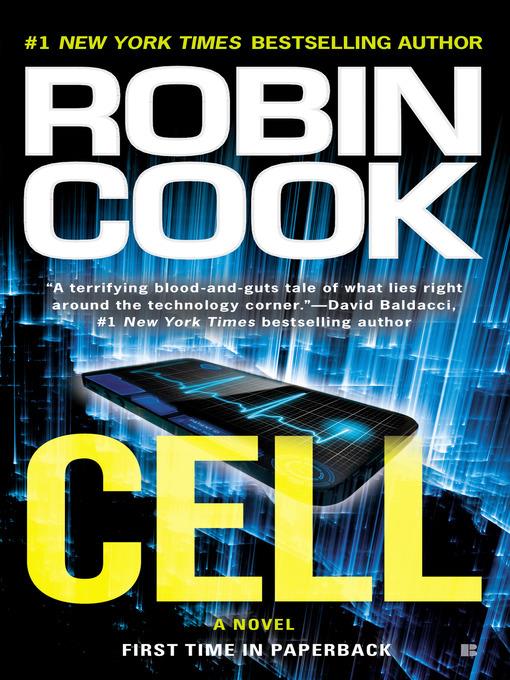
Cell
Medical Thriller
کتاب های مرتبط
- اطلاعات
- نقد و بررسی
- دیدگاه کاربران
نقد و بررسی

December 2, 2013
By combining plausible developments in artificial intelligence with current concerns about the number of available general practitioners, Cook (Nano) has produced one of his better recent thrillers. L.A. radiology resident George Wilson is racked with guilt after his fiancée, Kasey Lynch, dies of hypoglycemia as he was sleeping next to her. As he prepares to begin his final year of residency, a former med school colleague and occasional lover, Paula Stonebrenner, invites George to attend a rollout of iDoc, a smartphone app that functions as an individualized primary-care physician, which uses sensors to continually monitor vital signs and provide instantaneous diagnosis and treatment. The concept seems too good to be true, and that apprehension proves warranted when several test subjects of the app die unexpectedly, leading George to become obsessed with ascertaining the cause. The truth behind the deaths is both logical and surprising, and enables Cook to engage with serious medical ethics issues.

December 15, 2013
Cook's latest thriller (Nano, 2012, etc.). The "cell" of the title refers to cellphones, which are being used to deliver the services of a virtual physician. That's the business enterprise of George Wilson, the radiology resident that the author brings back and installs in a major medical center in Los Angeles. George, engaged to Kasey, awakens one morning to find she has died during the night. Since Kasey was diabetic, her death is linked to her disease, and although George mourns her, he doesn't question how it happened. At least, until he attends a meeting at the invitation of an old flame who wants to show off a new app called iDoc, which integrates real physicians and medical treatment with technology in a way that helps keep patients out of the emergency rooms and doctors' offices by offering them immediate, custom-tailored medical consultations over their cellphones. But when people that George knows start dropping dead and all of them are beta testers for iDoc, the fourth-year resident decides to probe deeper into the project. What he finds is the potential for enormous profits and, much scarier, the government's heavy hand stirring the pot. Soon, George is involved in an attempt to expose a plan to kill off high-risk cases and finds himself unable to trust anyone, setting off a series of catastrophic events that could lead to George's destruction. Cook, a physician, knows the world of medicine, but this book reads like it's phoned in: heavy with cliches, lacking plausible plot progression and packed with characters who speak in exclamation points. A disappointing attempt to link medicine and technology.
COPYRIGHT(2013) Kirkus Reviews, ALL RIGHTS RESERVED.

December 1, 2013
Cook, whose books are generally mixtures of good ideas and just-barely-passable writing, here focuses on a fictional new technology, iDoc, a smartphone-based diagnostic tool that appears to be connected to the deaths of several people, including the fianc'e of the book's central character, Dr. George Wilson, who has appeared in previous Cook novels and will risk his career, not to mention his life, to penetrate a murderous conspiracy. The prose is typical for Cook: workmanlike, at best, but definitely clunky, feeling more like a dashed-off first draft than a polished final product (in many cases, he takes several repetitive sentences to say something that could have been said in one artfully constructed sentence). On the other hand, also typically, the ideas are interesting and just plausible enough to make you think: hey, what if this really happened? Fans of Cook's lengthy oeuvre will certainly enjoy this book, but it may receive a less warm reception from readers who like their medical thrillers to be more evenly balanced between ideas and polished prose. HIGH-DEMAND BACKSTORY: It may not be artful, but Cook has found a formula that keeps readers coming back for more. That won't change here.(Reprinted with permission of Booklist, copyright 2013, American Library Association.)

























دیدگاه کاربران